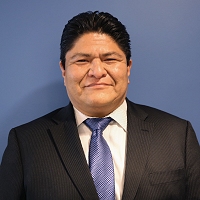The Internal Revenue Service (IRS) began accepting tax returns on January 29th, and the deadline to file is April 17th this year. If the only health coverage you have is through the Indian Health Service, and you do not have insurance, such as through your employer, the Marketplace, or through a federal health insurance program such as Medicare, Medicaid, or the Veterans Administration (VA), you will need to claim an exemption when filing a federal tax return to avoid paying any penalties.
The individual shared responsibility provision requires you, your spouse, and your dependents to have qualifying health insurance for the entire year, report a health coverage exemption, or make a payment when you file. However, members of federally recognized tribes or those eligible to receive services from an Indian Health Service, Tribal or Urban Indian Health Program may claim an exemption from the penalty. The exemption should be claimed on a federal income tax return using IRS Form 8965.
If you applied for and received an Exemption Certificate Number (ECN) in a previous year, then use the ECN to complete Part I of IRS Form 8965. If you did not obtain an ECN in previous years, you can still claim the exemption using IRS Form 8965 by entering code "E" in Part III of the form. You don't need to claim an exemption if you are not filing a federal income tax return.
If you and your family members all had minimum essential coverage for each month of the tax year, you will indicate this on your tax return by checking a box on Form 1040, 1040A or 1040EZ. No further action is required. If you purchased health care insurance through the Marketplace, you should receive a Form 1095-A, Health Insurance Marketplace Statement, at the beginning of the tax filing season. The information shown on Form 1095-A helps you complete your federal individual income tax return.
We want you to be aware that the IRS does not initiate contact with taxpayers by email, text messages or social media channels to request personal or financial information. This includes requests for PIN numbers, passwords or similar access information for credit cards, banks or other financial accounts. Report all unsolicited email claiming to be from the IRS or an IRS-related function to phishing@irs.gov. For more information on phishing and online scams visit the IRS website .
Lastly, if you do not have health care coverage and are interested in learning about your health care coverage options, please see a Patient Benefits Coordinator at your local IHS, Tribal or Urban Indian Health Program. You may search for your nearest IHS Health Facility using the Find Health Care website
For more information, visit the IHS Affordable Care Act or the Marketplace Tribal Resources .
Related Content:
A Toolkit for Native Youth and Their Health Care Future



